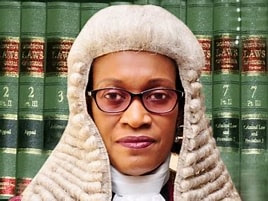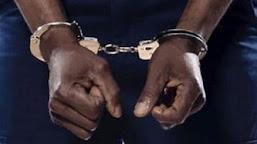Quick Facts About Nigerian Naira
1. Naira
and kobo are Nigeria’s official currency and legal tender.
2. The currency was introduced in Nigeria on 1st
January 1973 to replace the British Pounds and Shillings to reflect the country
independent status.
3. The
currency structure comprises of three coin denominations (50k, N1 and N2),
eight banknote denominations (N5, N10, N20,
N50, N100,
N200, N500
and N1000).
4. The N20, N50,
N100, N200,
N500 and N1000 banknotes were introduced in 1977, 1991,1999, 2000, 2001 and
2005 respectively.
5. ‘Naira’ was derived from the word ‘Nigeria’ by
the late nationalist, Obafemi Awolowo.
6.The
currency is often abbreviated as ‘NGN’ and depicted with letter ‘N’ having
double strikethrough ‘N’
7.Central
Bank of Nigeria (CBN), pursuant to the CBN Act is the sole issuer of legal
tender currency in Nigeria. Consequently, it is unlawful for any individual or
establishment to print or counterfeit Nigeria currency. The CBN also regulates
the volume of money supply in the economy to ensure monetary and price
stability.
How
to Spot Fake Naira notes
8. Look
out for the slim thread that runs from top to bottom. In some notes it looks
like silver or golden foil. This feature is difficult to counterfeit as it is
embedded on the banknote.
9. Check
for the following water marks; ‘CBN’, images of the portrait, the amount and in
some cases the coat of arm.
10. Use
mercury bulb. This appear to be the best method and it is often employed by
commercial banks to spot fake banknotes.
11.In the case of 100 naira, check out for and scan the QR (Quick Response) barcode on the face of the banknote with your mobile or any digital device. It will tell the centenary story of Nigeria. If the bar code does not bring up any detail, then it is fake.
Prominent
Figures on the Naira
12. Sir
Abubakar Tafawa Balewa - 5-naira note
13. Alvan
Ikoku- 10-naira bill
14. General
Murtala Ramat Muhammad - 20-naira bill
15. Chief
Obafemi Awolowo- 100-naira bill
16. Ahmadu
Ibrahim Bello - 200-naira bill.
17. Nnamdi
Benjamin Azikiwe - 500-naira bill.
18. Mallam
Alijy Mai-Bornu and Dr. Clement Nyong Isong - 1000-naira
Abuse
of the Naira
19. Spraying: it
is against the law to spray the Naira notes at occasions. Although this law is
often observed in breach than compliance, nevertheless, it is still in force in
Nigeria
20. Stepping: it
is against the law to dance or stamp on the Naira banknotes
21. Writing: writing on banknotes is a crime. Beware!
22. Stapling: it
is against the law to staple banknotes as the pins can cause corrosion of the
banknotes
23. Mutilation: it
is also an offence to mutilate the naira notes
24. Tearing: it
is against the law to tear banknotes
25. Rejection: It
is against the law to reject or refuse to accept the naira as a means of
payment.
26. Soiling: it
is against the law to deface or stain the banknotes with oil or ink.
27. Sale: It
is also an offence for any to hawk, sell or trade the naira. Many Nigerians
including Point of Sale (PoS) terminal operators seems to be ignorance of this
provision. They explained that the reason they increased the charges for PoS
transaction is because of the high cost of purchasing the naira from the bank.
This assertion is self-implicating.
It is
important to note that for the offences listed above, the offender on
conviction, shall be liable to a fine of N50,
000.00 or six-months’ imprisonment. This fine is ridiculous! The Act should be
amended to increase the fine.
Nosakhare Okuonghae
Legal Information Professional
nosakhareokuonsofficial@gmail.com
+234-9156497843




Comments
Post a Comment